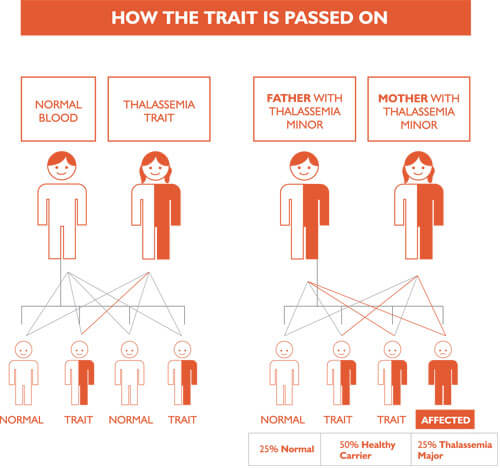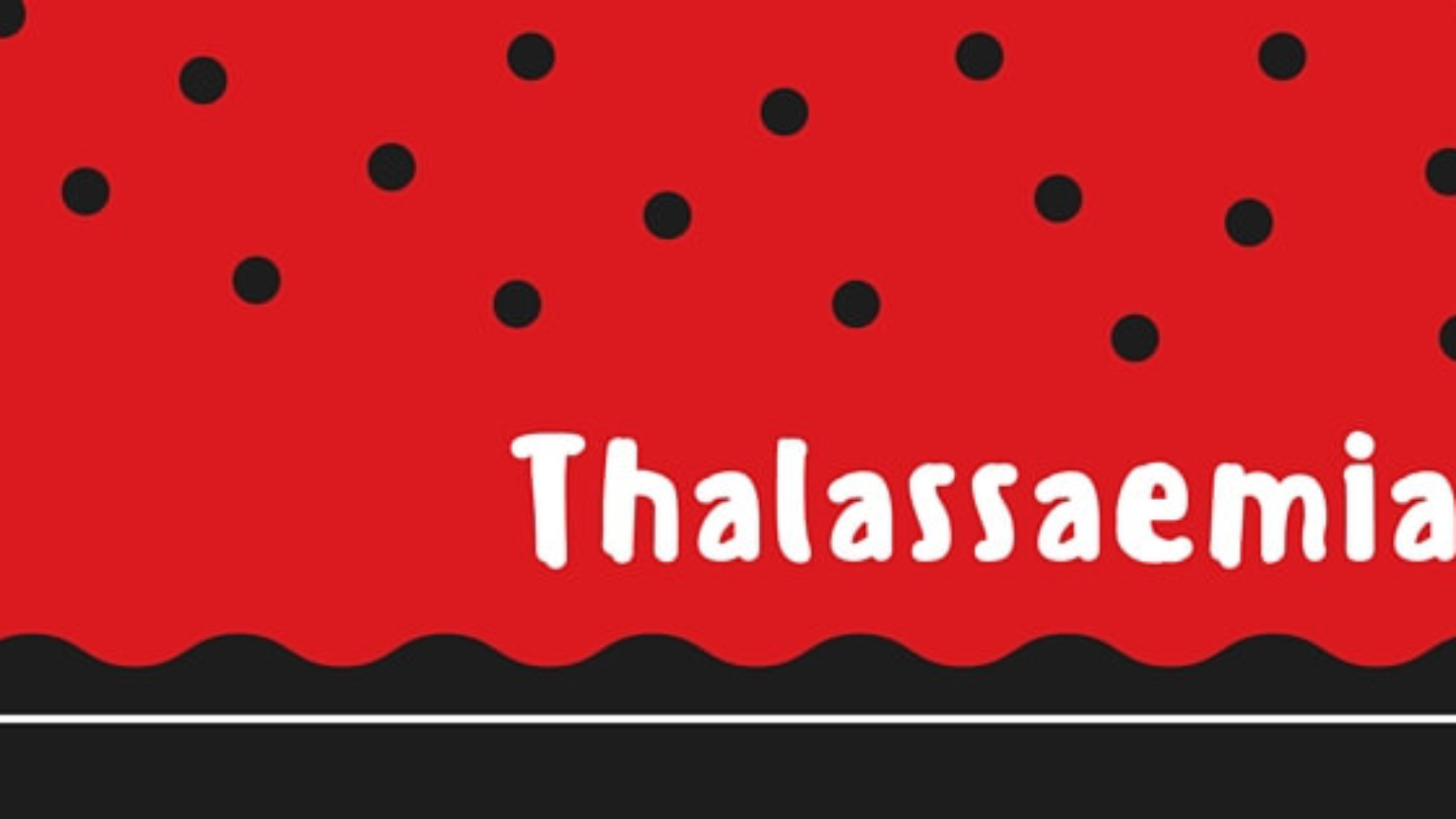If you have a family history of Thalassaemia it is time to check!
One in every 20 Malaysians has the potential of becoming a Thalassaemia carrier!
About Thalassaemia
Thalassaemia is an inherited (genetic) blood disorder. It happens when mutated genes affect the body’s ability to make healthy haemoglobin, the iron-rich protein found in red blood cells.
- An inherited genetic disorder of the red blood cells.
- Affects the production of haemoglobin and causes anaemia.
- Causes different degrees of anaemia, ranging from insignificant to life-threatening.
- Screening offers the opportunity for identifying Thalassaemia carriers.
- Prenatal Thalassaemia Testing allows the identification of Thalassaemia in unborn babies.
How does my baby get affected?
How children may be affected is dependent on whether one or both parents have Thalassaemia minor or carrier.

Thalassaemia Minor:
- Also known as Thalassaemia carrier.
- Does not show any symptoms or health problems.
- May be a little anaemic, but does not usually need treatment.
- Carriers can pass on the Thalassaemia gene to their children.
- Can only be detected through a special blood test.
Thalassaemia Major:
- Severe type of Thalassaemia.
- Unable to make the chemical needed for producing enough mature haemoglobin. The body is unable to carry oxygen properly.
- Fetus may not survive upon delivery or may die shortly after birth.
- Serious complications include:
✓ Life threatening anaemia.
✓ Requires lifelong blood transfusion and drug treatment.
✓ Liver and spleen enlargement.
✓ Bone deformities.
Signs & Symptoms:
- Depending on the severity of Thalassaemia.
- Some babies appear normal at birth, while others may develop signs and symptoms later on (from 3-18 months old).
- Growing older, the child will appear very pale and fatigue easily.
- Other symptoms include spleen enlargement, bone deformities, shortness of breath, slow growth and jaundice.
Family Planning:
- Special blood test or pre-marital Thalassaemia screening is available to check whether you and your partner are Thalassaemia carriers.
- If you or your partner is a Thalassaemia carrier, consult your doctor regarding Prenatal Thalassaemia Testing to check your baby’s status.
Prenatal Thalassaemia Testing
- A DNA test to detect Thalassaemia in the fetus.
- Can be carried out from 8 weeks of pregnancy onwards.
- Methods: amniocentesis, chorionic villus sampling or cord blood sampling methods.
- Early Thalassaemia diagnosis for the fetus will allow you and spouse to be more prepared for the special care and pared for your baby might need when it is born.
How to Check for Thalassaemia?
- Full Blood Test – Pre-marital screening to check yours and your partner’s Thalassaemia status.
- Hemoglobin Test – A blood test to screen for the types of Thalassaemia.
- Prenatal Thalassaemia Test – If you or your partner is a carrier, a DNA test can be carried out to check your baby’s Thalassaemia status (Normal I Minor/ Major).
Thalassaemia treatment options
- Regular blood transfusions to provide haemoglobin which the body needs.
- Treatment to remove excess iron in the body due to frequent blood transfusions.
- Bone marrow transplant from non-Thalassaemic matching donor.
- Cord blood transfusion from a non-Thalassaemic baby to its relatives diagnosed with Thalassaemia.
Please consult Dr Gan for more details if you are a Thalassaemia carrier and are planning to have children.
Know from the start, Prepare for the future!



Add a Comment